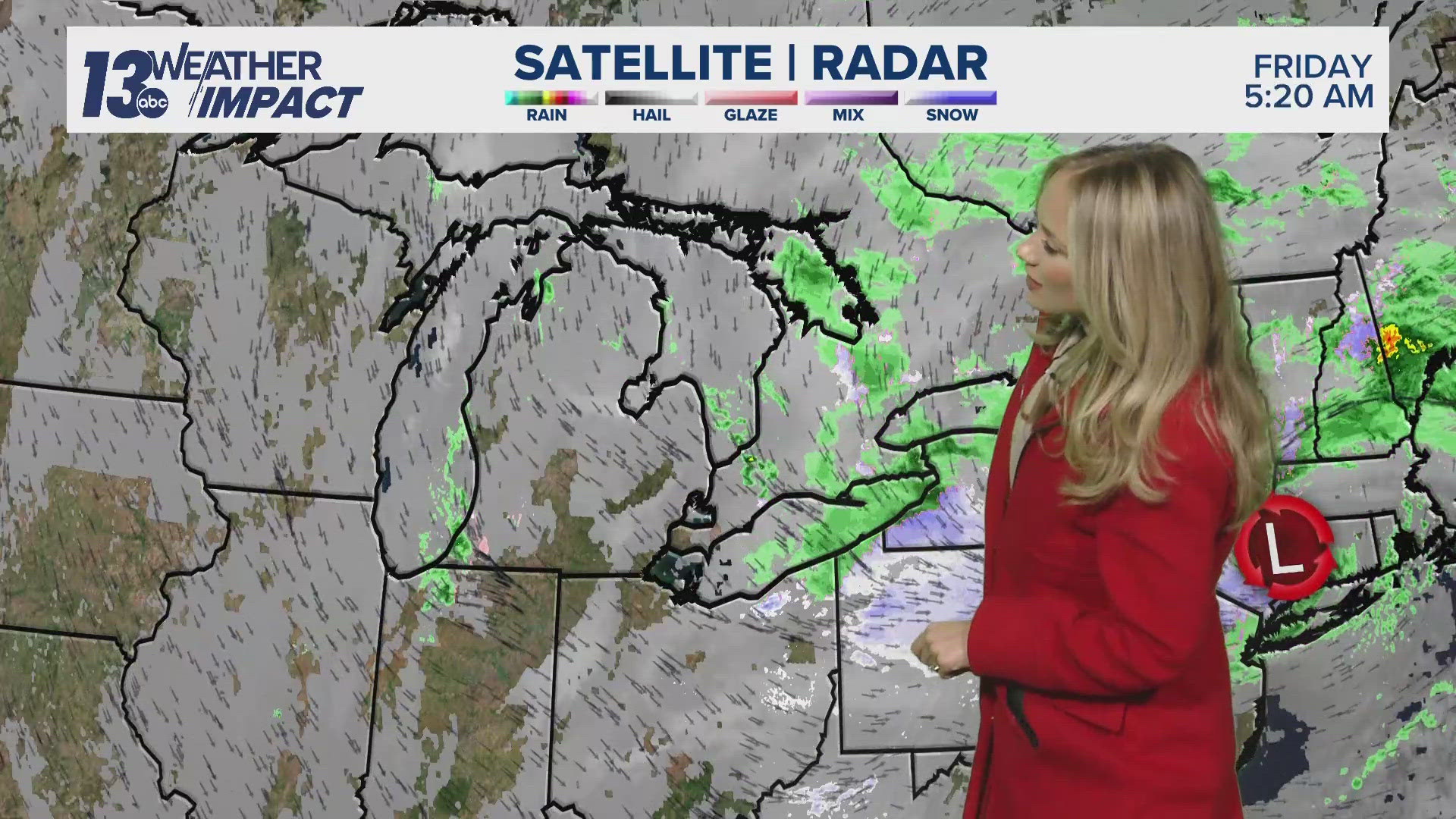GRAND RAPIDS, Mich. — High temperatures are one of the leading weather-related killers in the United States. According to the CDC, heat results in over one thousand fatalities each year.
If you're in need of a place to cool off, the Heart of West Michigan United Way shared a list of cooling centers in the Grand Rapids area on Facebook.
Here are some things to know about heat waves and how you can stay safe during one.
What is a heat wave?
The National Weather Service (NWS) describes a heat wave as "a period of abnormally hot weather generally lasting more than two days." They also said heat waves can occur with or without humidity. Heat waves can cover large areas, exposing a high number of people to hazardous heat.
How is a heat wave hard on the human body?
Hot and humid weather challenges the body's ability to cool itself. As the body heats too rapidly, works to cool itself, or loses too much fluid or salt through dehydration or sweating, body temperature rises. All of these things can cause heat related illnesses. Here is a list of heat related illnesses, their symptoms and how to treat them per the NWS.
Heat Cramps
Heat cramps may be the first sign of heat-related illness, and may lead to heat exhaustion or stroke.
- Symptoms: Painful muscle cramps and spasms usually in legs and abdomen and Heavy sweating.
- First Aid: Apply firm pressure on cramping muscles or gently massage to relieve spasm. Give sips of water unless the person complains of nausea, then stop giving water.
Seek immediate medical attention if cramps last longer than 1 hour.
Heat Exhaustion
- Symptoms: Heavy sweating, Weakness or tiredness, cool, pale, clammy skin; fast, weak pulse, muscle cramps, dizziness, nausea or vomiting, headache, fainting.
- First Aid: Move person to a cooler environment, preferably a well air conditioned room. Loosen clothing. Apply cool, wet cloths or have person sit in a cool bath. Offer sips of water. If person vomits more than once,
Seek immediate medical attention if the person vomits, symptoms worsen or last longer than 1 hour
Heat Stroke
- Symptoms: Throbbing headache, confusion, nausea, dizziness, body temperature above 103°F, hot, red, dry or damp skin, rapid and strong pulse, fainting, loss of consciousness.
- First Aid: Call 911 or get the victim to a hospital immediately. Heat stroke is a severe medical emergency. Delay can be fatal. Move the victim to a cooler, preferably air-conditioned, environment. Reduce body temperature with cool cloths or bath. Use fan if heat index temperatures are below the high 90s. A fan can make you hotter at higher temperatures. Do NOT give fluids.
If heat index temperatures are above the 90s, using a fan to try to blow air in someone's direction may actually make them hotter. For more information on heat related illnesses you can visit the CDC's website.
How does a heat wave affect infrastructure?
During a heat wave a city's infrastructure can be pushed to its limits. From transportation to utilities to clean water and agriculture, the NWS lists a handful of things that can be affected by a heat wave beyond just the human body.
- Transportation can be affected as high heat can deteriorate and buckle pavement, warp or buckle railway tracks and exceed certain types of aircraft operational limits.
- Utilities can be affected as a heat wave can put a strain on the power grid. As many people crank the AC and refrigerators work overtime to keep things cool electricity usage increases across the affected area. Also, the transmission capacity across electric lines is reduced during high temperatures, further straining the electrical grid.
- Conventional power plants require large quantities of water for cooling and crops may need more water during a heat wave. People also drink more water during a heat wave to stay hydrated and cool. All of these factors can strain water resources. And the strain on crops can have lasting impacts if crops are damaged, reducing production, causing short supply and/or increasing the cost of the crops for both farmers and consumers.
So how can I stay informed during a heat wave?
The best way to stay informed is by monitoring local television and radio, as well as checking online. 13 ON YOUR SIDE has compiled a list on how to get severe weather alerts on your phone. You can find that here.
►Make it easy to keep up to date with more stories like this. Download the 13 ON YOUR SIDE app now.
Have a news tip? Email news@13onyourside.com, visit our Facebook page or Twitter. Subscribe to our YouTube channel.
Watch 13 ON YOUR SIDE for free on Roku, Amazon Fire TV Stick, Apple TV and on your phone.



